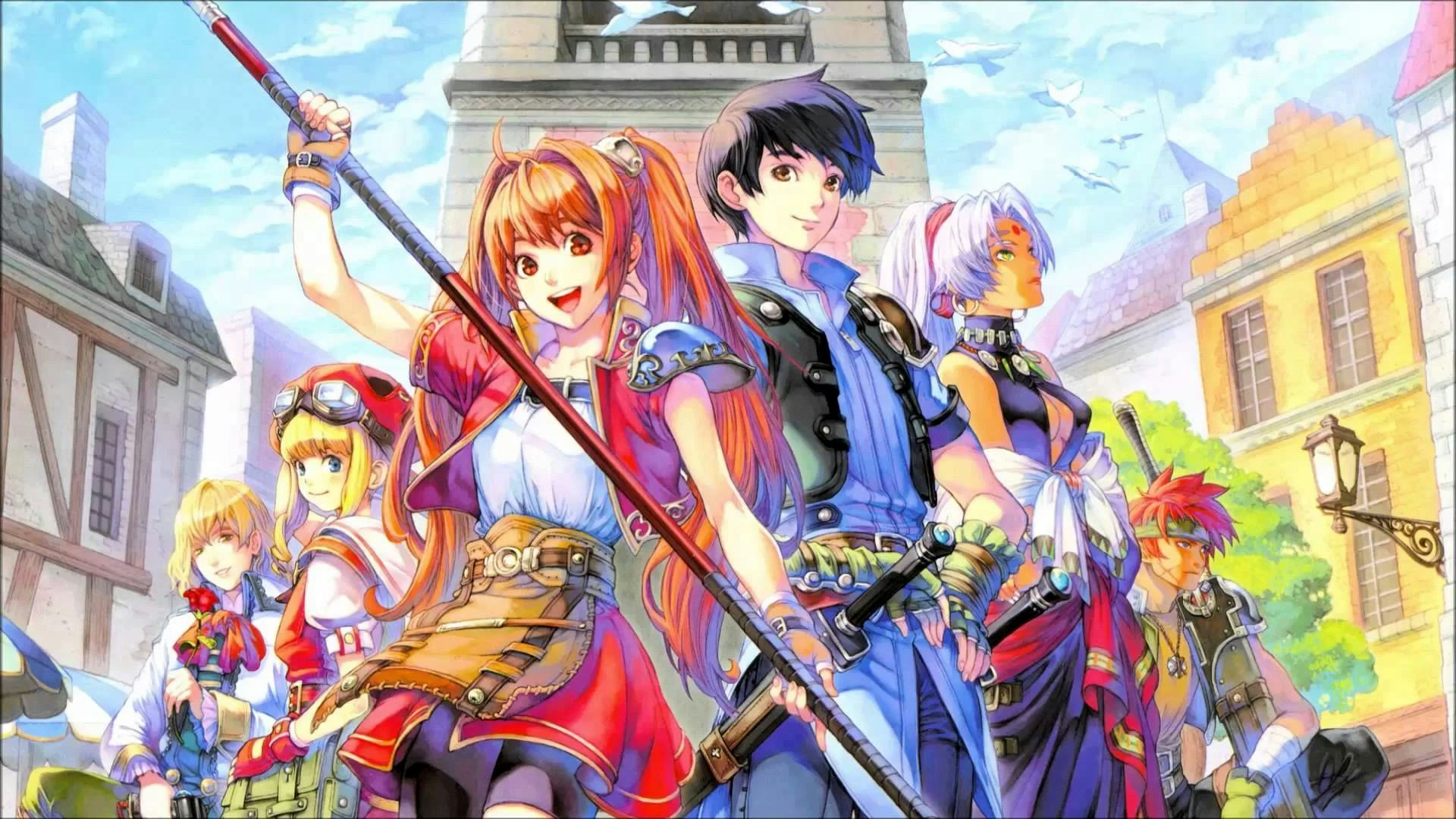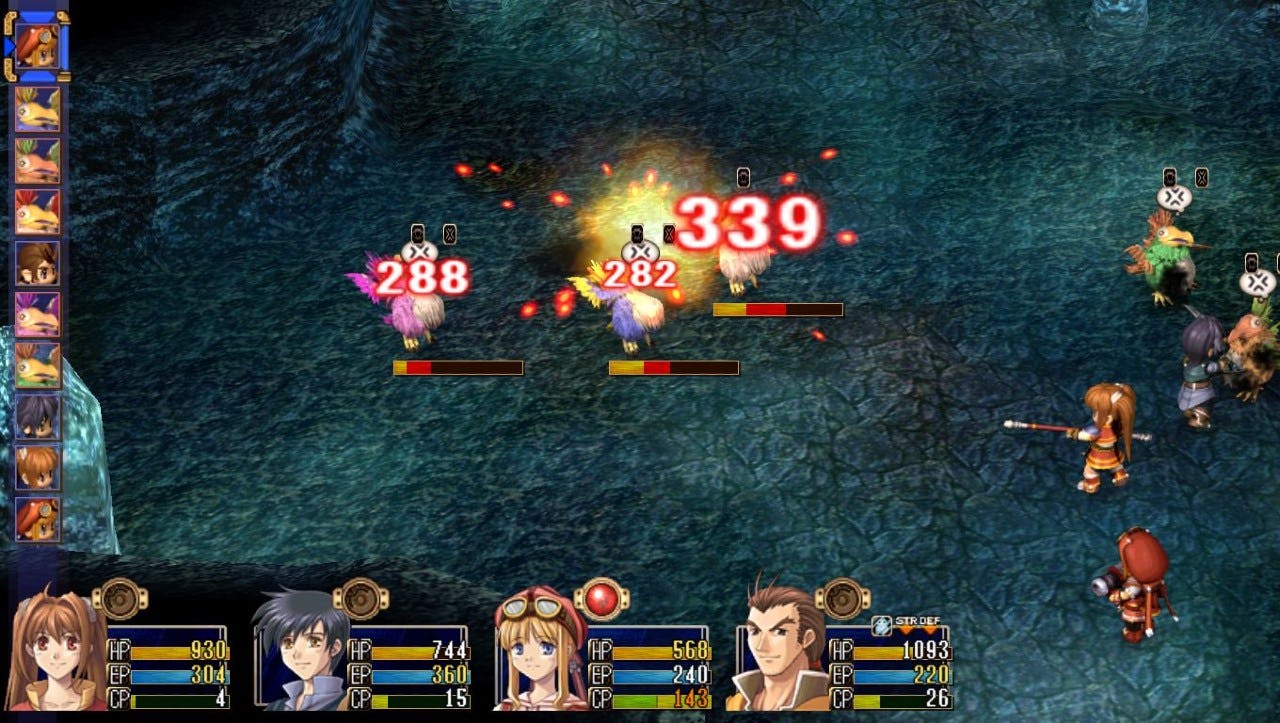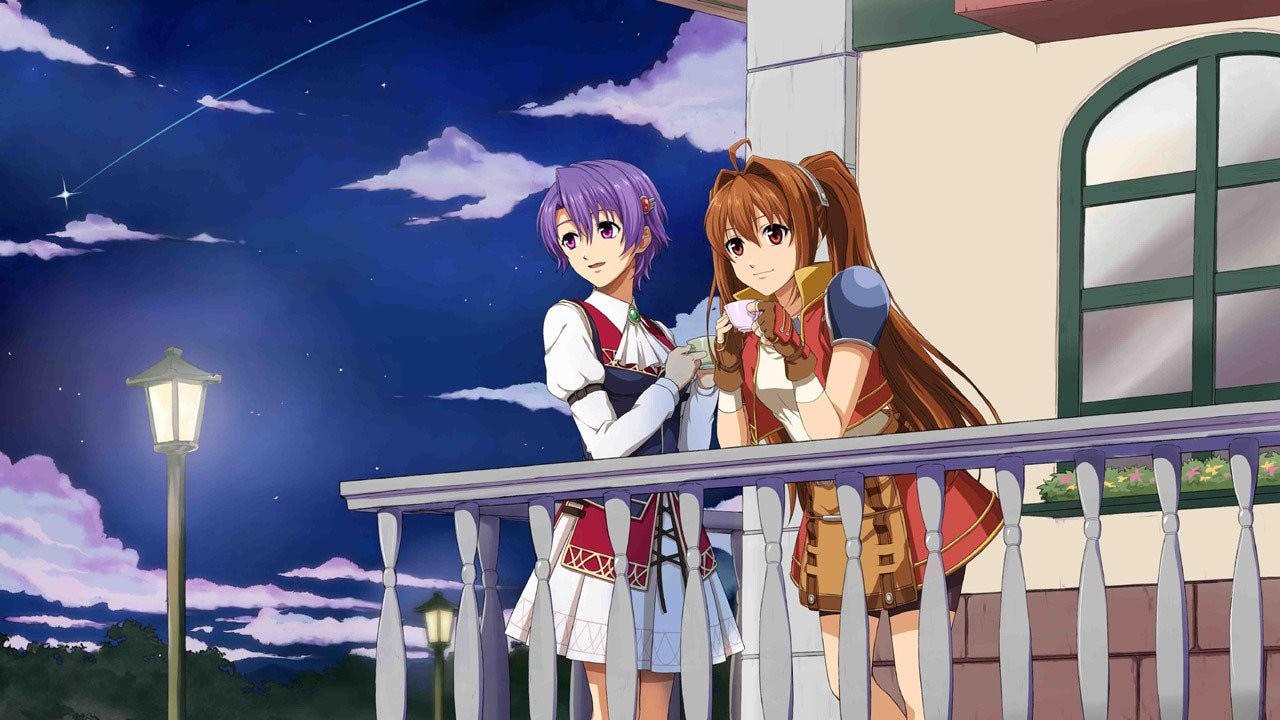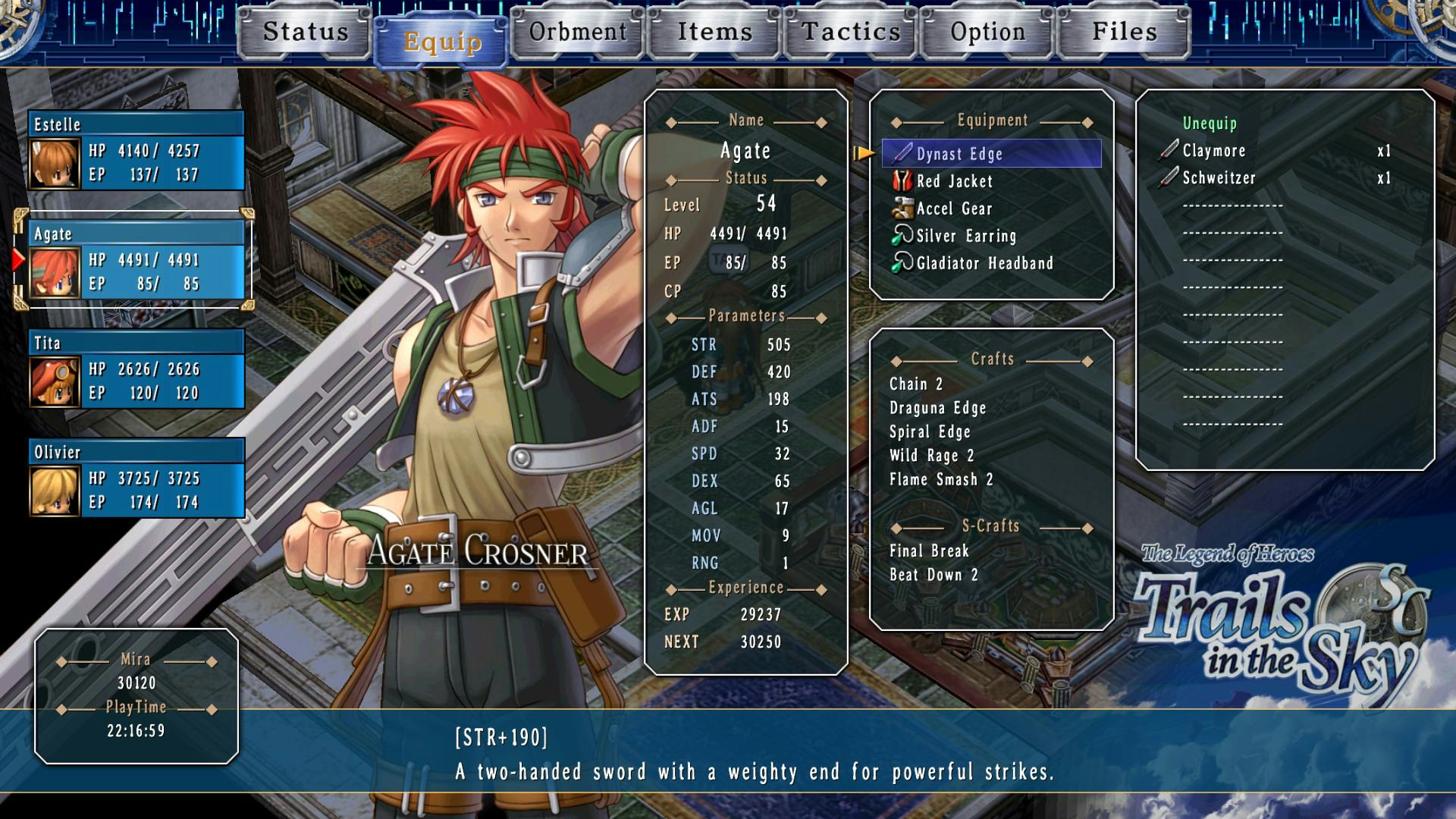
Twenty years is a long time in the world of video games, but twenty years of an ongoing story is even more impressive. In 2004, Nihon Falcom launched The Legend of Heroes: Trails in the Sky for PC, although it wouldn’t make its way West until a decade later. While the series had existed for years before, Trails in the Sky marked a massive turning point for Falcom, going down as one of the most overlooked RPGs of all time, and launching a new expansive sub-series that’s thriving more than ever right now.
On its face, Trails in the Sky sports a lot of the tropes turn-based RPGs are known for. It has an anime aesthetic and a bright-eyed heroine that wants to change the world, a shadowy evil organization, and an almost overwhelming amount of menus and character customization. Indeed, Trails in the Sky feels quite commonplace for its first bit, but the further you get, the more you can appreciate the ways in which it breaks the mold.

First and foremost this is done through the game’s protagonist, Estelle Bright, a fantastically written heroine that has a complex and involved narrative arc that runs throughout the entire game. Estelle is that bright-eyed youth, but as she goes through trauma and heartbreak she still retains that core positivity that’s integral to her character. She’s a shining beacon of hope to all around her, and the way that aspect still stays central as she matures is fascinating. On top of this, each and every party member has some kind of similarly meaningful arc, from Joshua learning to accept his dark past to the hot-headed Agate struggling to become a team player.
Estelle lives in the country of Liberl, which in turn is part of the continent of Zemuria. She’s the daughter of Cassius Bright, the brilliant general famous throughout all of Liberl, who now works as a top-ranked Bracer (a kind of mercenary-for-hire focused on helping the citizenry). When an airship carrying Cassius goes missing, Estelle and her adopted brother Joshua go searching — and find a wild conspiracy that threatens the entire country in the process.

More than almost any other RPG out there, Trails in the Sky takes excruciatingly detailed steps to invest you in its world and characters. The first half of the game is an intentional slow-burn that’s all about world-building, creating lore, and investing you in a host of complex characters. The writing is what really props up all of Trails in the Sky, and XSEED truly did a phenomenal job when it came to the West. There are even loads of little details, like the fan-favorite treasure chests, where each one says a different line when you check again after opening it.
Despite the stellar writing, however, Trails in the Sky does show its age in other aspects. The turn-based combat provides a lot of choice and customization but can quickly feel slow and tedious, especially with the number of battles the game throws at you. The same can be said for the general structure of the story and sidequests, all of which are extremely dialogue heavy and only mix things up with some minor exploration and combat. Trails in the Sky is absolutely a product of its time, but the writing and narrative hooks are more than enough to look past some of the more middling gameplay elements.

What’s most interesting about Trails in the Sky 19 years later, however, is seeing the formula it created. Every game in the Trails series builds on the formula established here, and that same focus on world-building and story is still present today. Even more remarkable is that characters like Estelle and Joshua are still playing relevant roles, and plotlines established all those years ago are still having payoff for fans that stuck with the series. It’s honestly staggering how well-realized this world consistently feels, and how grounded these characters are, despite the fantastical elements.
Trails in the Sky may not have aged as gracefully as other games in the franchise, but if someone was interested in the series I’d still tell them to start here. Playing a ten-game epic is a huge commitment, but seeing the Trials games, and characters, grow and evolve across generations of gaming is a singularly satisfying experience that you simply can’t find anywhere else.







